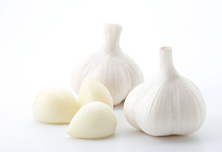L-Arginine
L-Arginine is a proteinogenic amino acid. Although it is a non-essential amino acid, it is sometimes referred to as conditionally essential for specific conditions that the adequate amounts cannot be synthesized. Foodstuffs such as peanuts, soy beans, meat (beef, chicken), egg yolks, eel and garlic contain high L-arginine. It is a precursor to the vasodilator NO (Nitric Oxide), and it is one of the components of the urea cycle, a process involved with the detoxification of ammonia.

- “Promoting secretion of growth hormones.” (Collier SR, et al., Growth Hormone and Igf Research. 2005;15(2):136-9, Blum A, et al., J Lab Clin Med. 2000;135(3):231-7, Welbourne TC. Am J Clin Nutr. 1995;61(5):1058-61.,)“
- “Promoting protein synthesis and muscle strength, with body fat reduction (when combined with ornithine).” (Elam RP, et al., J Sport Med Phys Fit. 1989;29(1)52-6, Elam RP, et al., J Sport Med Phys Fit. 1988;28(1)35-9.)
- “Promoting wound healing.” (Desneves KJ, et al., Clin Nutr. 2005;24(6):979-87.)
? “Improving erectile dysfunction in males.” (Chen J, et al., BJU Int. 1999;83(3):269-73, Zorgniotti AW, et al., Int J Imp Res. 1944;6:33-6.) - “Improvement of immune system function.” (Moriguchi JC, et al., Eur J Clin Nutr. 2005;59(12):1362-6, Barbul A, et al., Surgery. 1981;90(2):244-51.)
Note: While information regarding substances and components shown here is based on scientific data, it does not relate to the safety or effectiveness of products which use them. Statements relating to consumer products should conform to the clauses of relevant legislation such as the Health Promotion Law and The Pharmaceutical Affairs Law in each countries and areas.